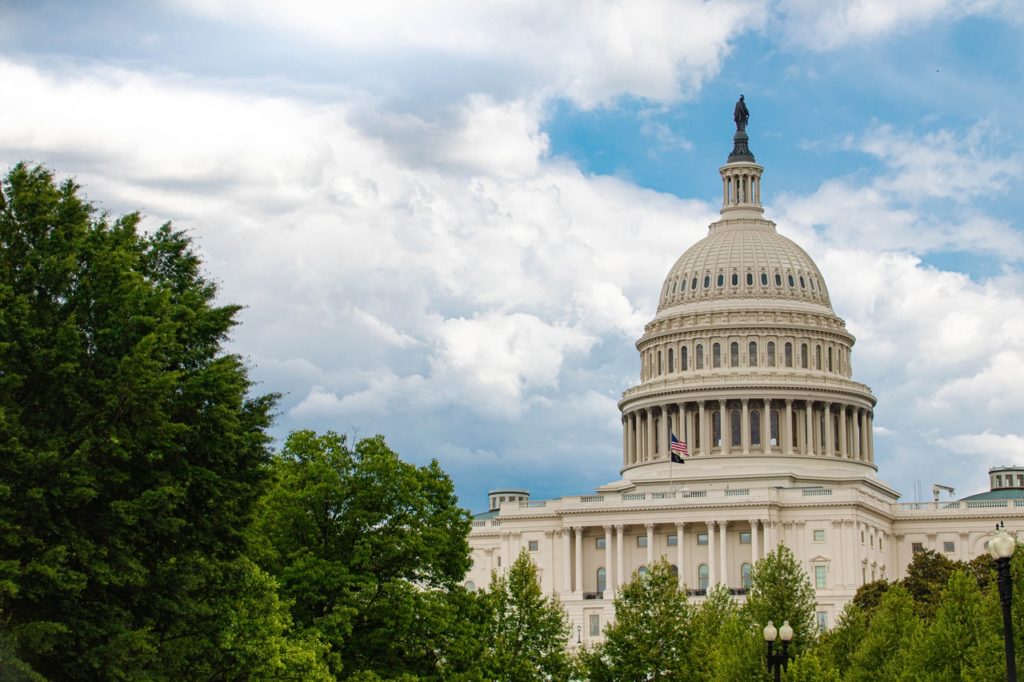Many hospices have relied heavily on travel nurse agencies to reinforce their clinical teams during the pandemic. Now, a pair of bills currently before Congress would require a federal study of those agencies’ impact on health care.
The Travel Nursing Agency Transparency Study Act would instruct the U.S. Government Accountability Office (GAO) to study the ways contract nursing companies have done business during the past two years, including accusations of price gouging.
Sen. Kevin Cramer (R-N.D.) introduced the bill in the Senate (S.4352), with Rep. Greg Murphy (R-N.C.) sponsoring the House version (H.R. 8576).
“Unfortunately, there have been reports of travel nursing agencies taking advantage of the pandemic with questionable business practices that are increasing costs and severely hurting our health care providers and patients alike,” Murphy, a physician, said in a statement. “Our bill will examine the impact of these practices on the health care industry and ensure transparency moving forward.”
If enacted, GAO would examine travel nursing agency pricing and seek to determine if these companies contributed to the workforce shortage. The federal government would also look closely at their profits relative to the amounts they pay nurses in wages. GAO is a nonpartisan agency that conducts research and investigations on behalf of Congress.
Health care providers and industry groups have questioned the legitimacy of the soaring costs , with some calling them exorbitant. The American Hospital Association has been vocal on the issue.
Hospice organizations have endorsed the proposed legislation to study travel nurse company practices, including the National Hospice and Palliative Care Organization (NHPCO) and its advocacy arm the Hospice Action Network (HAN).
“Hospices cannot compete with the high contract, excessive rates required by travel nursing agencies. These agencies appear to have capitalized on the public health emergency by charging exorbitant rates,” Ben Marcantonio, interim president and CEO of NHPCO and president of HAN, said in a statement. “We look forward to continuing to work with Senator Cramer and Congressman Murphy to garner additional support and prioritize finding immediate workforce solutions to ensure access to quality end-of-life care.”
The cost of supplementing their workforce has been a pain point for hospices and other health care providers during the past two years.
Generally, travel nurses receive higher wages than full-time staff within health care companies, and some have seen their paychecks double or triple as more providers sought their services. This has further complicated recruitment and retention for hospice operators who are competing with these firms for job seekers.
In earnings conference calls last year, hospice and home health provider LHC Group (NASDAQ: LHCG) indicated that they would save $1.4 million per quarter for every 100 basis points they could reduce contract nurse utilization.
Fellow home health and hospice giant Amedisys (NASDAQ: AMED) saw their Q3 2021 hospice revenues fall by $2 million, which the company largely partially attributed to higher than normal utilization of contract nurses, the company indicated in an earnings call. Hospice segment revenue in Q3 totaled $198 million.
Those were last year’s numbers, and both companies (among others) have since reported reductions in travel nurse engagement, particularly as the Omnicron surge subsided and fewer employees were entering quarantine.
The workforce shortage predates the pandemic and will all but certainly extend beyond it, leading some industry observers to conclude that utilization will likely decline in the long term — but not to pre-COVID levels.
Currently, demand for travel nurses is see-sawing as health care companies implement strategies to reduce utilization and COVID infections rise and fall.
In recent months, staffing firms have seen changes in demand fluctuate between a 5.8% increase and a 3.3% decrease, accompanied by a slight dip in pricing, according to research by Brian Tanquilut, equity analyst for Jeffries Financial Group.
While accusations of price gouging have been flying, they have yet to be proven. Some stakeholders and analysts have posited that the rate increases reflect changes in supply and demand rather than misdeeds.
“I call caution for our experience to characterize it as ‘price gouging,’” Bruce Greenstein, chief strategy and innovations officer for LHC Group, previously told Hospice News. “To some extent, maybe it’s just a market working efficiently in that we have massive excess demand for a limited supply. It’s not a regular commodity; it’s a piece of labor. We as a market are so desperate for that.”
Companies featured in this article:
Amedisys, American Hospital Association, Hospice Action Network, Jeffries Financial Group, LHC Group, National Hospice and Palliative Care Organization



